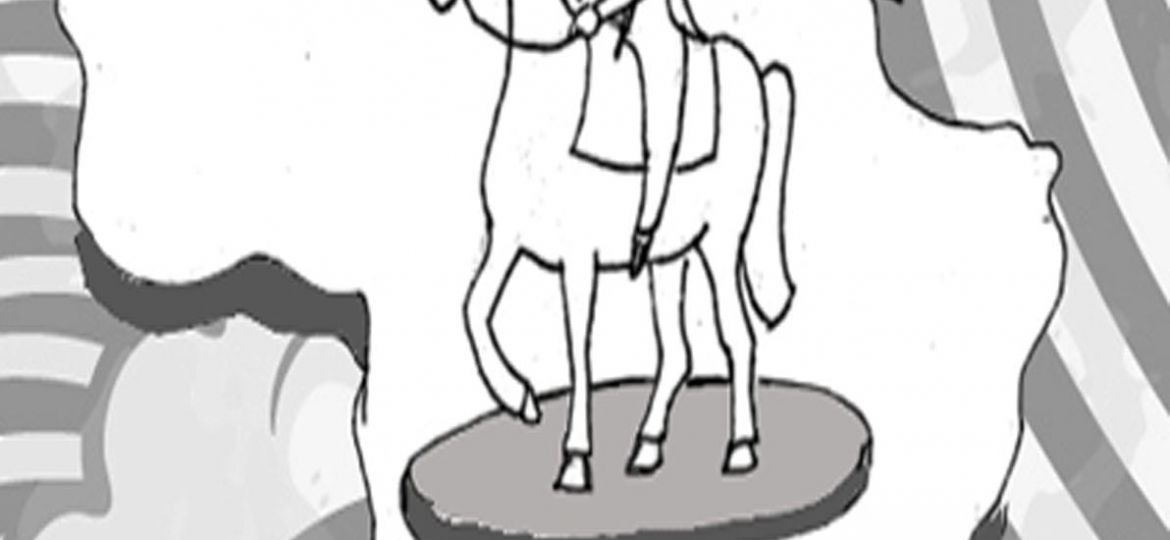
We’ve seen the images of Molotov cocktails, makeshift defenses and brutal struggles between protesters and riot police in Kiev’s Independence Square. At the same time, we hear American and European officials calling for Russia to leave Crimea and give democracy a chance in Ukraine. However, Ukraine does not just need more democracy; it needs to revamp the idea of sovereignty to include the various groups within its borders.
Ukraine’s president was ousted after several months of vicious protests. Russian troops have locked down the Crimean peninsula, and Crimea is moving to secede from Ukraine to join Russia. Western spectators have lampooned Russia for its aggressive stance against what appears to be Ukrainian democracy. However, while Russia has overstepped its boundaries and violated international law, Ukraine has not been an exemplary nation either. “Democracy” in the abstract will not fix or prevent another upheaval in Ukraine.
Ukraine is a divided country. The eastern and southern regions of the country speak Russian and lean more towards the Russian sphere of influence, while the western region including the capital, Kiev leans more in the direction of the European sphere of influence. Despite these entrenched contrasts, Ukraine is a unitary state, meaning that the laws passed in Kiev hold near-absolute power. This one-size-fits-all approach may work in the various republics throughout Europe that do not have such a culturally varied population, but it does not suit Ukraine’s needs.
When a schism does occur, as it did with the E.U. negotiations, the minority group takes to the street to make its voice heard. The opposition’s job is to take criticisms of the majority and create an effective political language. Ukraine needs to reform its constitution to curb the powers of the president. As it stands, even if an effective opposition exists in Ukraine, it does not have sufficient power to stop the president from making rash decisions.
Ukraine should reform its constitution to not only curb the powers of the president but also to impose a federal-style state. After former president Viktor Yanukovych fled Ukraine, the new coalition in Kiev put forward a law to ban use of the Russian language for official purposes throughout Ukraine. Considering that Russian is the native language for a third of the country, such discriminatory practices highlight the kind of laws both sides have proposed to advance their agendas. In reality, no single group should have absolute power in Ukraine, but rather a slow and deliberate process should delegate power between opposing factions.
Crimea, which already holds autonomous status within Ukraine, is a different story. Russia has deployed troops to the Russian-speaking area in defense of ethnic Russians. It’s easy to see that this is problematic. Then again, Russia has a more justified case to be in Crimea then the U.S. had to be in Iraq.
Russian president Vladimir Putin fears that the new government in Kiev could close the doors on the naval base. Accordingly, Putin has followed the logic that a good offense is the best defense. He intends to blockade Ukrainian troops until Crimea holds its referendum to secede. However, it seems unlikely that once Crimea votes for independence it will actually be taken in by Russia. Rather, it will probably float in a sort of Black Sea limbo with greater autonomy than it now has.
The situation in Ukraine is messy to say the least. However, both sides are in the wrong here, not because of their beliefs, but because the restrictive political system in Ukraine has opened up the streets as the only real place where voices will be heard. The divided ethnic groups in Ukraine should come together in order to establish a federal-style government and depose the demagogues who play roulette with their country’s future. A slow and deliberate approach to government in Ukraine would allow the minority groups in Ukraine to hold greater power, thus preventing another occupation of Independence Square.
Seth Ellingson ’15 ellingsons@stolaf.edu is from Powder Springs, Ga. He majors in political science and Russian.
Graphic Credit: ALLI LIVINGSTON/MANITOU MESSENGER

